The Minneapolis Area Synod and Augsburg University’s Christensen Center for Vocation were both awarded a Thriving Congregations grant through the Lilly Endowment to support work with area congregations. These individual projects share a commitment to accompanying congregations as they discern their call to BE neighbor, rooted in their faith and opened to the neighborhood.
Our two organizations are partnering to support each other in this work. While the particular experiences of congregations who participate in either project will differ in some key ways, our mutual efforts and curiosities are in sync with each other. This opens room to collaborate and learn together over the life of this initiative.
Our collaboration begins in offering a joint application process for congregations interested in either (or both) of these projects. Whether you are interested in MAS’s “Faith Practices and Neighboring Practices” learning community or Augsburg’s “Riverside Innovation Hub” learning community, we are providing a single application process. Our staff members are partnering closely to offer congregations a straightforward and thoughtful experience as you discern the exciting opportunities that our Thriving Congregation’s Grants are making available.
For brief project descriptions, distinctions, and eligibility for each project you can see this PDF document.
Project Descriptions & Eligibility
Riverside Innovation Hub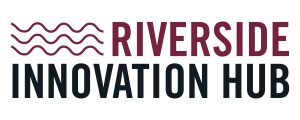
The Riverside Innovation Hub, stewarded by the Christensen Center for Vocation at Augsburg University, will learn and experiment with the Public Church Framework as a method for place based vocational discernment in the public square for the common good. This new opportunity is an invitation to congregations interested in pursuing or deepening this same orientation in their particular place, in relationship with the neighbor and neighborhood, leaning into God’s promises and challenges that meet us there. This project is open to all Christian congregations within an hour of the Twin Cities Metro Area. Congregations outside this geographic area may apply but should know their experience in the project may differ slightly. Participation in the learning community will include bringing teams to Augsburg’s campus 3-4 times a year (as COVID-19 allows.)
Learn More about Riverside Innovation Hub
Neighboring Practices and Faith Practices
Neighboring Practices and Faith Practices, stewarded by the Minneapolis Area Synod, will focus on faith practices and neighboring practices, because congregations connect best with their neighborhood when they practice their faith and they see with new eyes that God is already at work in their neighborhood. The Minneapolis Area Synod project is open to all Evangelical Lutheran Church of America (ELCA) congregations within the geographic boundaries of the Minneapolis Area Synod and African Methodist Episcopal (AME) congregations within Minnesota.
Learn More about Faith Practices and Neighboring Practices
Application Process
Step 1: Learn more:
 Co-hosted informational sessions were offered in February. Each project is hosting one additional opportunity specific to their project.
Co-hosted informational sessions were offered in February. Each project is hosting one additional opportunity specific to their project.
For Minneapolis Synod congregations, watch for a workshop at the MAS Toolkit event on Saturday, March 13th.
For congregations interested in the Riverside Innovation Hub, RSVP at the link below for an info session on Tuesday, Mar 16th from 10:30-11:30am.
Note: RIH is open to any Christian denomination in the metro area or surrounding cities. MAS is open to ELCA Minneapolis Area Synod churches and Minnesota AME churches.
Step 2: Submit Letter of Intent
Accepted on a rolling basis
Congregations interested in pursuing the application process with either the MAS or RIH projects are asked to have their senior pastor submit a letter of intent to apply, via a google form. Letters of intent will be accepted on a rolling basis, until the end of the application period.
Submission of your letter of intent will:
- Allow congregations to indicate which project they are considering and why. And if you are considering both projects, why.
- Help MAS and RIH staff streamline communications as the application process moves forward by adding you to direct mailings about the process and being available to you for further conversation.
- Help your congregational leaders move through the application process in a timely and thoughtful way.
Form to Submit a Letter of Intent
Step 3: Submit Application
Submit on or before April 15, 2021
The Riverside Innovation Hub and Minneapolis Area Synod are collaborating on a joint application. The application Google form will include a “Primary Application” and supplemental questions for each project. Eligible congregations are welcome to apply for both opportunities, however if selected, you’ll only be invited to participate in one.
Official Google Form to Submit Applications
Step 4: Invitation Process
 RIH and MAS will review applications together and extend invitations to selected congregations (12 RIH) and (15 MAS) on May 15th. Congregations will have until May 28th to accept the invitation.
RIH and MAS will review applications together and extend invitations to selected congregations (12 RIH) and (15 MAS) on May 15th. Congregations will have until May 28th to accept the invitation.
Augsburg’s learning community begins July 2021 and runs through July 2023.
The Minneapolis Area synod learning community begins September 2021 and runs through September 2023.

 The two initiatives will work in parallel for the five years of the grant. The hope is to learn with, beside, and from each other during the two, two-year cycles with distinct cohorts of congregational leaders. Both opportunities are for congregations interested in pursuing or deepening an orientation in their particular place, in relationship with the neighbor and neighborhood, leaning into God’s promises and challenges and that meet us there. The promotion and application processes are collaborative, through co-hosting information sessions and a shared application for congregations. More details on information sessions and the application will be released soon.
The two initiatives will work in parallel for the five years of the grant. The hope is to learn with, beside, and from each other during the two, two-year cycles with distinct cohorts of congregational leaders. Both opportunities are for congregations interested in pursuing or deepening an orientation in their particular place, in relationship with the neighbor and neighborhood, leaning into God’s promises and challenges and that meet us there. The promotion and application processes are collaborative, through co-hosting information sessions and a shared application for congregations. More details on information sessions and the application will be released soon. 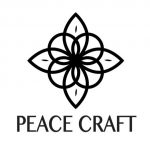
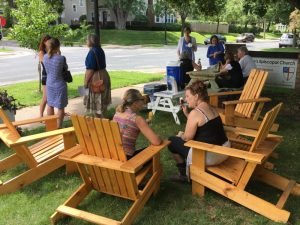

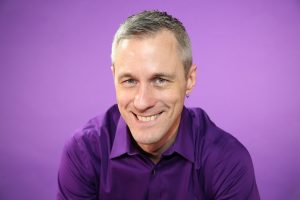




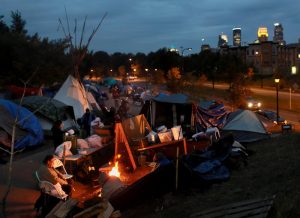
 Rev. Dr. Robert Michael Franklin of the Candler School of Theology was our speaker at the Christensen Symposium on October 1, 2020. He spoke on his recent book, Moral Leadership: Integrity, Courage, Imagination. This book addresses much of how the Christensen Center for Vocation attempts to implement our various initiatives with congregations, students and our Augsburg colleagues. A video of his talk is shared below.
Rev. Dr. Robert Michael Franklin of the Candler School of Theology was our speaker at the Christensen Symposium on October 1, 2020. He spoke on his recent book, Moral Leadership: Integrity, Courage, Imagination. This book addresses much of how the Christensen Center for Vocation attempts to implement our various initiatives with congregations, students and our Augsburg colleagues. A video of his talk is shared below.
